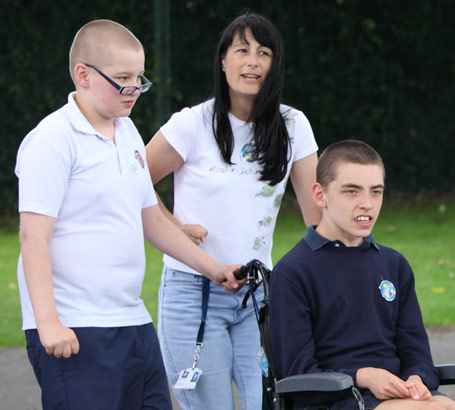
When you look at the research addressing parental engagement, it shows that parents are most likely to become engaged if:
- They understand that they should be actively engaged.
- They feel they are capable of making a useful contribution.
- They feel the school and their children want them to be involved.
(Garrigan, 2011)

Review the Ellen Tinkham home school agreement.
What would you add or delete to make this relevant to your school?

The most effective parent-engagement programmes are guided by these ideas.
- All parents have strengths and know they are important.
- All parents can contribute to their children's education and the school.
- All parents can learn how to help their children in school.
- All parents have useful ideas and insights about their children.
- Parents should be consulted in all decisions about how to effectively involve parents.
- All parents really do care deeply about their children.
(Henderson and Berla, 1996)
Consider the ideas above. Transcribe them in your own words as a parental involvement statement for your school, along the lines of 'At X School, we believe parents are...'.

The Northern Ireland Education Inspectorate (2000) identified the following effective features of partnership with parents of children and young people with severe and profound learning difficulties:
- Early involvement of parents in their son or daughter's support programme and in establishing a related home-based programme.
- Providing parents with information (e.g. policies and procedures).
- Involving parents and, where possible, their son or daughter in developing key procedures, processes and policies (e.g. around child protection, pastoral care provision, etc.)

- Inviting them to a range of timetabled activities (e.g. curricular workshops, parent/teacher/staff association meetings).
- Providing a home-school links teacher.
- Keeping a home-school diary.
These strengthened the trust relationship between parents and schools. Could this also be extended to 'families'?

- Participate in their son or daughter's education (e.g. implementing the early years programme).
- Have time to share their concerns about their children with one another.
- Gain useful skills and knowledge to help support their child's development across a range of areas.
- Increase their confidence.
A suggested extension was to support the mainstream placement of children and young people with special educational needs.

Wrexham started a Supporting Parents of Exceptional Children (SPEC) Group which facilitated a weekly discussion group for parents in school. The group:
- Provided a place where parents' social and emotional need to meet and talk informally could be met.
- Facilitated discussion among parents around: coping; issues with housing, benefits, annual reviews and other social and welfare issues; difficulties with their son or daughter.
- Supported their understanding of how to help their children, behaviour support strategies, child development, language and play, how to work with their children at home.
- Offered a qualification in speaking and listening.
(McMinn and Britten, 2005)

From talking with the parents we found they all felt isolated, confused
and exhausted. They were fearful of the future and were showing signs of chronic stress and depression. It was no wonder that
they felt unable to work collaboratively.
Parents had often endured more than an hour of kicking and screaming from their child before the school taxi arrived, and
they were often left to face the day physically and emotionally exhausted, very concerned about their child and dreading home
time.
(McMinn and Britten, 2005)

Education and Training Inspectorate (2000) A Survey of Provision for Pupils with Severe and Profound Learning Difficulties in Northern Ireland (1998-2000). Bangor, Northern Ireland: Department of Education, Inspection Services Branch.
Garrigan, P. (2011) Engagement must not stop at the gate, The Sydney Morning Herald (13 June).
Henderson, A.T. and Berla, N.((eds) (1996) A New Generation of Evidence: The Family is Critical to Student Achievement. Washington, D.C.: Center for Law and Education. McMinn, J. and Britten, G. (2005) 'A different way of working with parents', SENCO Update